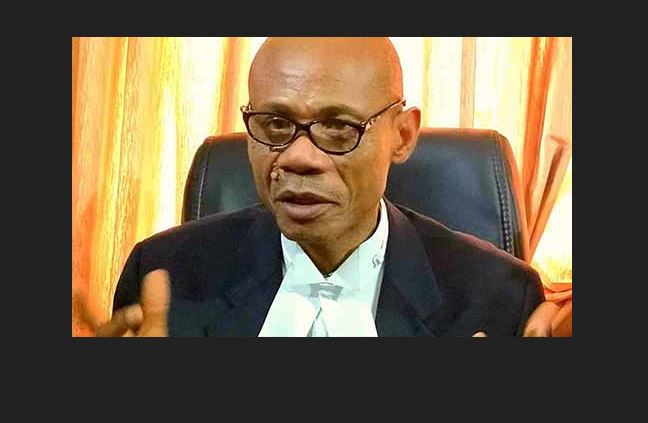
We must learn from Uche Wisdom Durueke’s legacy | Dele Adesina SAN



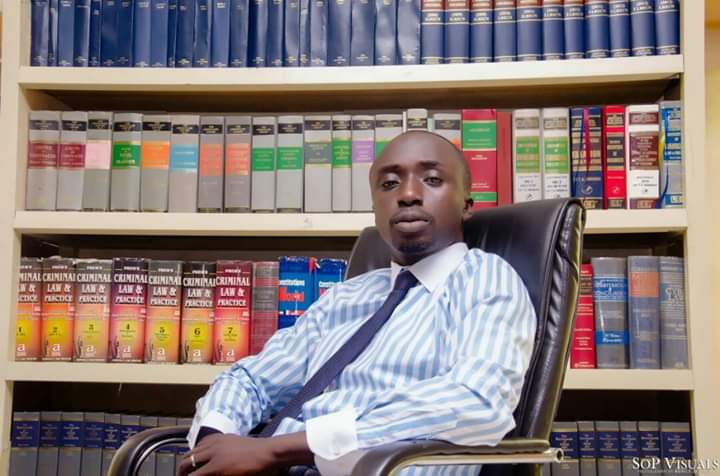

(There would always be a repeat.
After this, you will have another event
There would always be a repeat.)
Pardon my crude translation of this Yoruba proverb but it was the best I could come up with in the circumstances. A major part of my growing up was spent supporting my dad who pastored our church (a quite small one). My church had a self-acclaimed master talking drummer who was always fond of playing with his talking drum the above-highlighted proverb, usually used to sing the praises of patrons and equally praying that such wonderful event would recur. Our talking drummer, however, met his ‘waterloo’ when he played this proverb with his talking drum at the burial ceremony of a 40-year old man who had died in a ghastly motor accident. The rest as they say is history! Such is the enormity of praise singing that I rarely embark on it as it could lead to the opposite of one’s intention. How else can you qualify the act of a woman singing “be thou exhausted” while trying to worship God? Her intentions of exalting God almost got Baba God exhausted. That’s on a lighter note, sure we know Baba God can never get exhausted.
Writing about Dele Adesina SAN, could sometimes be seen as praise singing by an average reader, but the fact is, one can hardly be immodest while talking about the learned Silk. William Hazlitt (1778-1830) famously noted that “the greatest offence against virtue is to speak ill of it.” You would never find me speaking ill of a man of virtue like Deacon Adesina SAN. One virtue has particularly stood out in Deacon’s interaction with people over time and this is the virtue of modesty. This coupled with his deep understanding of the tasks ahead of him makes him a stand-out candidate for the office of President of the Bar. It is not uncommon for him to use phrases like ‘by the grace of God’, ‘God willing,’ etc.
Against the background of easily the busiest and most challenging period the NBA and the world at large has seen in recent times, calmness and yet precision are unarguably key assets the next NBA Boss needs to have. *Talking about calmness, candour, precision, integrity, experience and capability, the learned Silk Adesina has them in abundance.* He is not flatulent (borrowing Prof Olu Obafemi’s word in the poem “Do Gooders”) and his spot-on answers to questions posed at him depict him as a reservoir of knowledge and as someone who is always prepared. His views on partnership as the future of the legal profession amongst other views depict him as someone who aptly understands the past, present and future of the legal profession. Bob Marley’s famous song title “Who the cap fits” is apt at describing the suitability of Deacon Adesina for this role. He is in the words of Confucius, the great one who possesses a perfect virtue resonating around ‘gravity, generosity of soul, sincerity, earnestness and kindness.” He is who he is, the son of his father. I dare say that praise singing is hard afterall.
Since awaiting NCDC’s daily update has now become a routine, I hope and pray that Coronavirus will today afflict less Nigerians and indeed totally exit the world soonest.
I am Adeboye ‘Seye Thompson and I am a member of the Nigerian Bar Association.
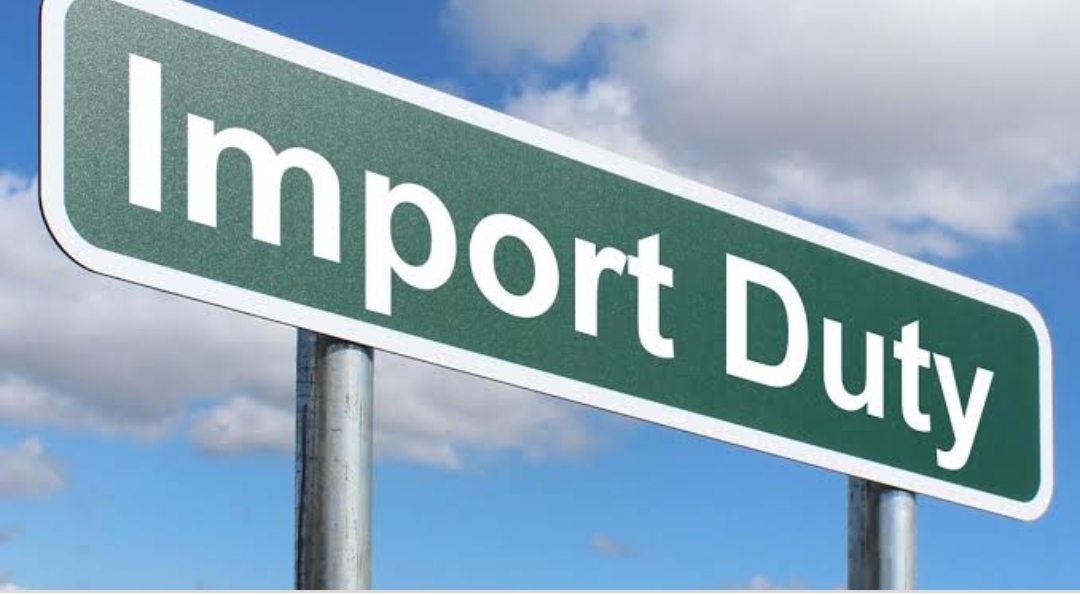



Mrs. Bisi Akodu, the Managing Partner of O.A.L., died on Sunday, the 10th of May, 2020 at the age of 66 following a protracted illness which she fought with all her faith. She was an exemplary advocate, a passionate Legal Practitioner and a mentor to many subordinates. Her contribution to the development of our Jurisprudence and her impressive knowledge of the Nigerian Financial System was almost unrivalled.
It is an understatement to say that this hard-working, dedicated and committed Managing Partner will be greatly missed by her Families, both the blood family and of course her Professional family. It is our prayer that the Lord will give the Families the fortitude to bear the irreparable loss.
May her kind and gentle soul rest in peace.
Dele Adesina SAN
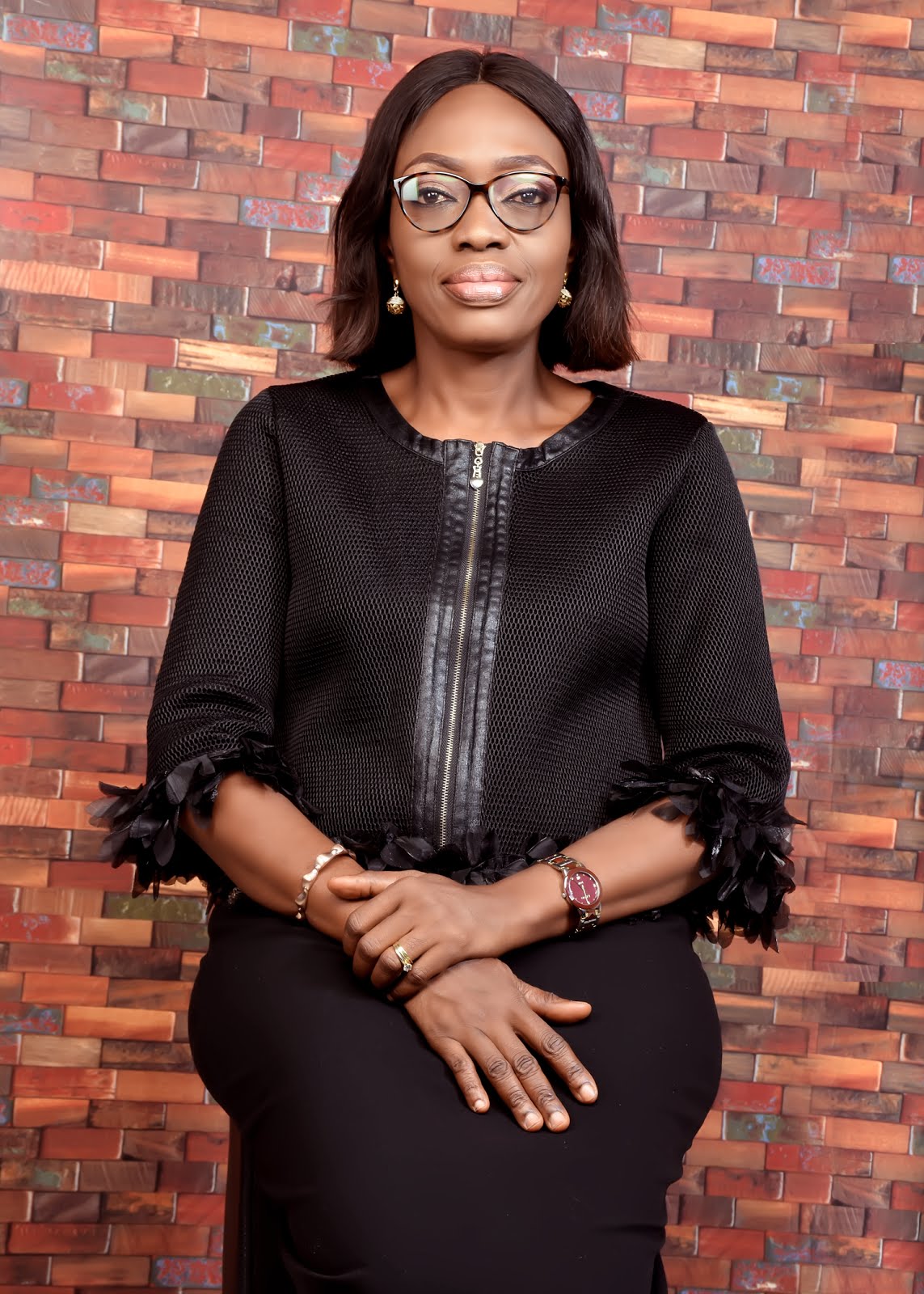

Mrs. Akodu was the Managing Partner (MP) and the head of OAL’s Corporate/Commercial Practice and Public Sector Group. She will be remembered as an advocate for change and for being an astounding professional and brilliant lawyer whose passion was always evident in all she did.
May her gentle soul rest in perfect peace!
Caroline Ibharuneafe, Mrs.
Past Vice – Chairman, NBA Ikeja)
#Integrity+accountability
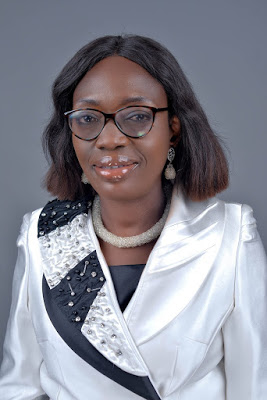

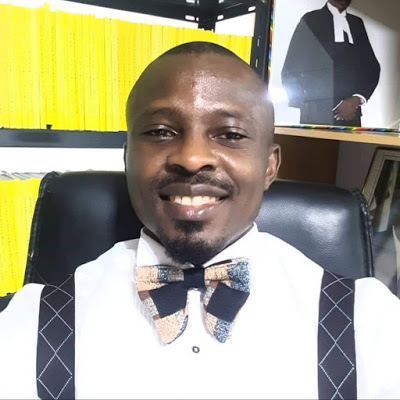

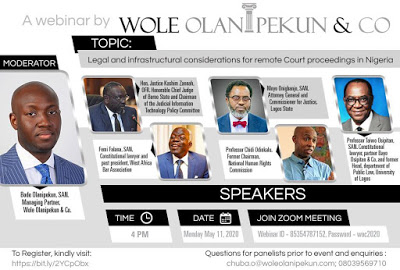

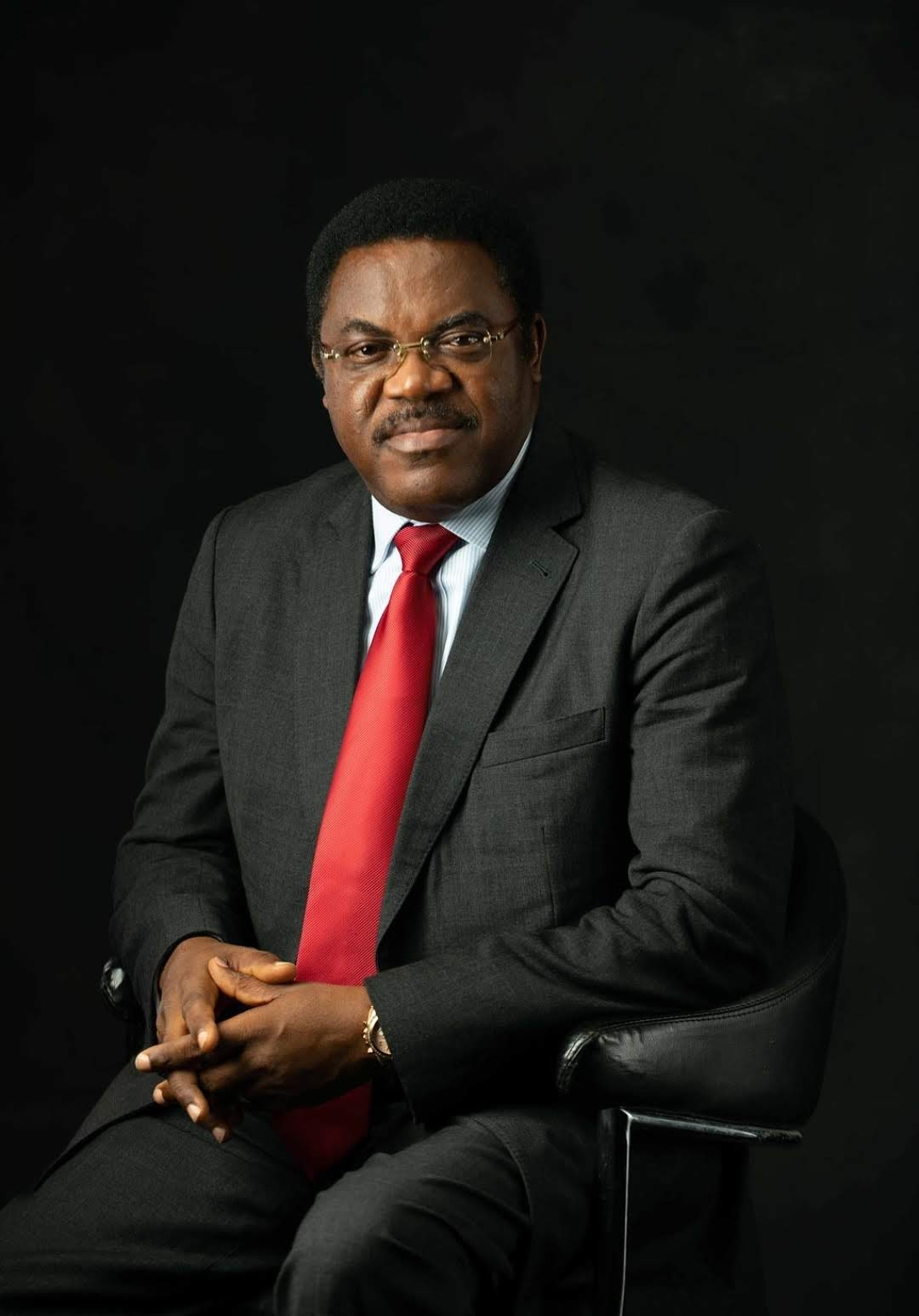

As an active player, I want to state that the challenges confronting Justice Administration in Nigeria is systemic, structural and attitudinal in nature. For me however, the greatest impediment to impactful justice delivery whereby everyone involved will get value and fulfilment is an attitudinal problem. No matter how bad a system or structure may be, if the practitioners do the right thing, apply the right approach and take the right step, the effect of the inadequacy of the system and structure can be mitigated. This is why I am focusing on the practitioners.
Whether as an Advocate or a Commercial Legal Practitioner, the end that we seek for our clients is Justice, Justice, and Justice!!!
However, it is not an overstatement to say that the practitioners of the system either as Advocates, both private and commercial and Judges on the Bench erect various impediments to getting impactful justice. That is to say getting speedy justice that will fulfil the expectations of the people without delay and or procrastination as is the case in Nigeria today. It is common knowledge that cases last in some instance for as much as 10-15-20 years journeying from the High Court to the Supreme Court. Arbitration which throughout the world is known as an alternative dispute resolution is also failing to meet its target. Examples abound in Nigeria that arbitral awards are also gradually becoming a cause of action rather than resolution of a dispute between contending parties.
How about endless adjournments, frivolous applications, frivolous interlocutory appeals, frivolous petitions against opposing Counsel and even in some cases against trial Judges. All on the part of the Practitioners at the Bar. On the part of the Bench, you see negative attitude to innovations, late sittings or not sitting at all, lack of proper apprehension of the Rules and lack of the necessary will to enforce the Rules. These are some of the frustrating attitudes of the Practitioners in achieving positive justice. We have got to change this negative attitude if we want results that will be positively impactful to the users of the system. Everyone’s attitude determines his/ her altitude.
The Legal Profession is a highly regulated profession with a standard code of conduct to guide and moderate our operations. Unfortunately, it appears to me that like any other law in Nigeria, the enforcement of this standard code of conduct is less effective; hence, impunity reigns supreme. The time has come for us to begin to do things in a different way so that we can get a different result. Otherwise, the Profession will be gone before we know it.
To address these challenges mentioned above, proper attention must be focused on our disciplinary procedure in order to ensure that smart but procedurally wrong steps are made sanctionable. A Counsel who files frivolous suits must be sanctioned for failure to offer proper professional advice to clients. The same goes for Counsel who take pleasure in defending the indefensible. After all, it is a professional misconduct for a Counsel to urge a defence he does not believe in on the Court.
We have argued over and over again that interlocutory appeals be made to terminate at the Court if Appeal. For me nothing stops the total termination of interlocutory appeals so that whatever dissatisfaction against any Ruling should be taken together with the substantive judgment. Something similar to what operates in election petition cases.
Before anybody challenges any arbitral award, the challenger must be made to deposit the award into an interest yielding account. These I submit will stop many frivolous cases challenging a properly rendered award by an arbitral panel. Most of the cases are to exhaust the patience of the other party and render the award useless.
Our Judges must come back to the days of old of erudity and industry when Bench Rulings are delivered promptly in respect of contentious applications instead of the usual adjournments that we witness today on any little argument. It is said that an ignorant Judge is a calamity to the society. Of course, the Rules of procedure must be obeyed including award of costs in accordance to the Rules for any shortcoming by Counsel.
The Lawyers must hold their duties to justice as a minister in the temple of justice superior to any other duty by doing the proper thing most expeditiously.
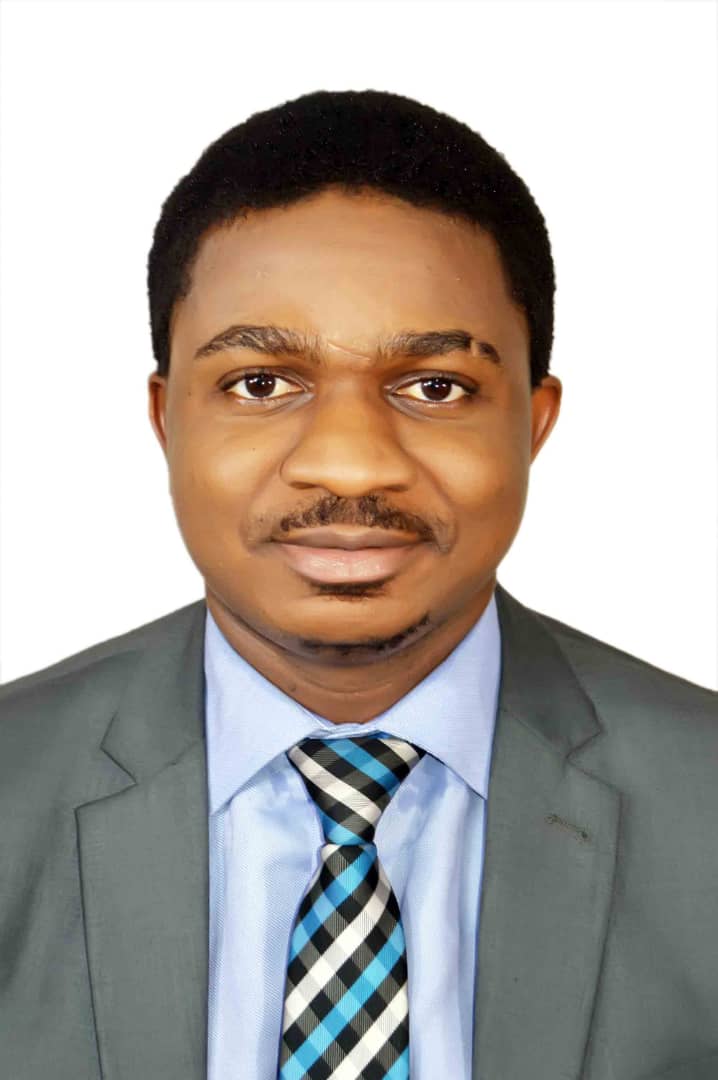

1.01 The effect of the novel coronavirus has been felt in almost every sector across the world, including Nigeria, one of which is the judiciary. In a bid to curb the spread of the virus in the Nigerian judiciary, the Chief Justice of Nigeria, Hon. Dr. Justice I.T Muhammad, on March 23, 2020, directed all courts in Nigeria to suspend sittings for an initial period of two weeks at the first instance, except in matters that are urgent, essential or time-bound. After the expiration of the initial two weeks suspension of court sittings, His Lordship, Hon. Dr. Justice I.T Muhammad on 6th April, 2020, gave another directive, this time suspending court sittings sine die. His Lordship, however, noted again that courts are expected to sit particularly to dispense matters that are urgent, essential or time-bound.
1.02 Following the directive of His Lordship, the Chief Judge of Lagos State signed the “Lagos State Judiciary Remote Hearing of Cases (COVID-19 Pandemic Period) Practice Direction” (hereinafter referred to as the “Practice Direction”), which came into effect on May 4, 2020. The essence of the Practice Direction is to ensure the hearing and determination of urgent and time-bound cases through digital platforms like Zoom, Skype or any other video and audio conferencing platform approved by the Court. Recently, the Lagos State judiciary had its first virtual sitting in line with the Practice Direction. It is expected that, other State judiciaries will adopt the Lagos model to hear cases virtually. In fact, the Borno State judiciary has also already recorded its first virtual sitting wherein a Judge delivered a judgment in a criminal matter. Another State judiciary- Ekiti State judiciary – has made arrangements to adopt virtual hearing of cases.
1.03 In addition to the above, the Attorney General and Minister of Justice of Nigeria, Abubakar Malami, SAN, and the National Judicial Council have both announced separate plans for Nigerian courts to resort to virtual proceedings during and after the covid-19 pandemic. It is therefore, a question of when, and not if, virtual court proceedings will become a norm across Nigeria.
1.04 In this paper, I will undertake a consideration of the current legal position that governs judicial proceedings in Nigeria. I will also test the constitutionality and legality of the Practice Direction with basic constitutional provisions that guarantees open and fair trials in Nigeria. At the end of this exercise, it will be argued that while virtual court proceedings serve an undeniable utilitarian value, proceeding with them without first amending the extant Nigerian Constitution and other relevant substantive laws, would be an effort in futility.
2.00 The 1999 Constitution and the Conduct of Court Proceedings in Nigeria
2.01 The Constitution of the Federal Republic of Nigeria, 1999 (as altered), hereinafter referred to as “the Constitution”, provides that court proceedings, including delivery of court decisions, shall be held in public. For emphasis, Section 36 (3) and (4) of the Constitution provide as follows:
“(3) The proceedings of a court or the proceedings of any tribunal relating to the matters mentioned in subsection (1) of this section (including the announcement of the decisions of the court or tribunal) shall be held in public.
(4) Whenever any person is charged with a criminal offence, he shall, unless the charge is withdrawn, be entitled to a fair hearing in public within a reasonable time by a court or tribunal…”
2.02 As highlighted above, the requirement for public hearing and determination of cases in Nigeria is mandatory as the operative word is “shall”. The law is settled that, where the word “shall” is used in a statute, it means a command to do or not to do a particular thing. The law therefore, leaves no room for discretion. See the case of Onochie vs. Odogwu (2006) 6 NWLR (Pt. 975) 65 at 89. It is pertinent to note that, there are two provisos to the provision of Section 36 (4) of the Constitution, but the said provisos are not relevant to the instant discourse.
3.00 Judicial Pronouncements on Public Trial
3.01 The compulsoriness of conducting court proceedings in public has been upheld in a plethora of cases. In the case of Edibo v. The State (2007) 13 NWLR (Pt. 1051) p. 306, the appellant and others were charged with culpable homicide punishable with death. Their plea was taken in the chambers of the trial Judge. At the end of trial, the appellant was found guilty of the crime for which he was charged. He appealed to the Court of Appeal and lost. On further appeal to the Supreme Court, the legal effect of the appellant’s plea which was taken in the chambers of the trial Judge was examined. In determining the appeal, the Supreme Court considered the provisions of Section 33 (1) and (3) of the 1979 Constitution, which are in pari materia with the provisions of Section 36 (1) and (3) of the 1999 Constitution (as altered). In allowing the appeal and setting aside the decisions of the Court of Appeal and the trial court, the Supreme Court held that, the taking of the appellant’s plea in the Judge’s chambers was not only irregular, but fundamentally defective. For emphasis, the Court held at page 326 paragraph H of the law report as follows:
“The proceedings of the 19th January, 1998 wherein the plea of the appellant and others were taken in the Judge’s chambers was not only irregular; it was fundamentally defective rendering the entire proceedings null and void. I hold in the circumstances that this appeal succeeds on that issue. The appeal is accordingly allowed and the judgment of the court below is set aside. The entire proceedings of the learned trial Judge including the conviction and sentence of the appellant and others tried along with him contravened the provisions of Section 33 (3) of the 1979 Constitution and same is hereby declared null and void and is set aside.”
3.02 The rationale of the Supreme Court for nullifying the decision of the trial court in the above case on the ground that, the plea of the appellant was taken in the Judge’s chambers, was that, a Judge’s chambers is not a public place which permits unrestricted ingress and egress from the general public. At page 334 of the law report, the Court per. Hon. Justice Ogbuagu, J.S.C, explained as follows:
“Let me dismiss with respect, and as completely misconceived and unacceptable to me, the submission at page 19 paragraph 6.2 of the respondent’s brief, that the Chambers of a Judge, is a public place and satisfies Section 33(3) of the 1979 Constitution (as amended) and section 36(3) of the 1999 Constitution of the Federal Republic of Nigeria. I say so because, nothing can be far from truth. If I or one may ask, can the chambers of a Judge, be described as an “open place” which is accessible to all and sundry? I think not. … I hold firmly, that a Judge’s Chambers, cannot and will never be, a public place or an “open” and unrestricted place.
By these references and arguments, can the learned counsel for the respondent, in all honesty and seriousness, maintain or insist, that he/she can walk into the Chambers of any Judge or Justice, without the consent or permission of the said Judge or Justice and unrestricted? I think not. Surely and certainly, a Judge’s Chambers, is not and cannot be equated to a hall in a public building that is used for formal meetings. As a matter of fact, a Chambers, can also be defined as or equated with a private bedroom or private room. Even in Black’s Law Dictionary, 7th Edition at page, 224, a Judge’s chambers, is defined as “the private room or office of a Judge.””
3.03 In the case of Oviasu v. Oviasu (1973) 11 SC 315, which was a case involving the hearing of a petition for dissolution of marriage in a Judge’s chambers, the Supreme Court set aside the decision of the trial court and held that, the hearing of the petition in the Judge’s chambers occasioned a fundamental irregularity as same was not conducted in public. The Court defined “public” to mean “open to everyone without discrimination. Anything, gathering or audience which is not private is public”. Similarly, in the case of Nigeria-Arab Bank Limited v. Barri Engineering Nig. Ltd. (1995) 8 NWLR (Pt. 413) 257, judgment was given in the Judge’s chambers. Relying on its decision in the Oviasu’s case, the Supreme Court set aside the decision of the trial court and held that the delivery of the judgment in the Judge’s chambers occasioned an irregularity which touched on the legality of the whole proceedings. Again, in the case of Alhaji Nuhu v. Alhaji Ogele (2003) 18 NWLR (Pt. 852) 251, the Supreme Court set aside the decision of an Upper Area Court which was delivered in chambers. The Supreme Court held that, the procedure adopted by the Upper Area Court was a fundamental breach of the Constitution which rendered the judgment delivered null and void.
4.00 Do Virtual Court Proceedings pass the legal test for proceedings held in public?
4.01 Fidelis Nwadialo in his book, Civil Procedure in Nigeria, 2nd Edition, posited at page 674 thereof that, “hearing in public entails a situation where the public is not barred… A trial is sufficiently public if members of the public may have access to where it is taking place. The actual presence of the public is, however, not necessary.” J. A Agaba on his part, stated at page 524 of his book, Practical Approach to Criminal Litigation in Nigeria, that, “the “public” here refers not only to a formal courtroom but it must be a place where there is access by the public.” In the case of Edibo v. The State (supra), Justice Ogbuagu likened “public place” to “a hall in a public building that is used for formal meetings”.
4.02 While it is arguable that, a proceeding held in a “public place” does not necessarily entail a proceeding conducted within the four walls of a courtroom, the question still remains: do virtual court proceedings pass the legal test for proceedings held in public? This question is answered in the negative. Going by the decisions of the Supreme Court in the cases of Edibo v. The State (supra), Oviasu v. Oviasu (supra), Nigeria-Arab Bank Ltd v. Barri Engineering Nig. Ltd. (supra), and Alhaji Nuhu v. Alhaji Ogele (supra), one common feature of a “public place” for the purpose of conducting legal proceedings is that, same is an open place which is accessible to everyone without hindrance of any sort. Virtual court proceedings do not have this feature.
4.03 There is no gainsaying the fact that, before virtual communication of any kind can take place, the following must be available: appropriate technology gadget (like smart phone), access to internet and registration with a virtual communication service provider. According to a February, 2020 report by Statista, only about 25% to 40% of Nigerians have a smart phone. According to another report by We are Social and Hootsuite, published in January, 2020, only 42% of Nigerians have access to the internet. Putting the foregoing together, it is already clear that, unfettered access to virtual court proceedings in Nigeria will not be feasible to a larger percentage of the Nigerian public.
4.04 Further to the above, going by the tenor of the Lagos Practice Direction, particularly Articles 14, 15, 16, 17 and 18 thereto, virtual court proceedings will be open to the Judge, respective litigants and their counsel. I expect the Practice Directions of other States to have similar provision. This practice, if implemented, is restrictive and limiting in nature as members of the general public would not have access to the said virtual proceeding. Limiting virtual court proceedings to only the Judge, respective litigants and their counsel would defeat the spirit of Section 36 (3) and (4) of the Constitution, as any “justice” arrived thereat, would be cloistered justice. In the Nigeria-Arab Bank’s case (supra), the Court held as follows:
“Any act of secrecy, however desirable it might seem, detracts from the aura of impartiality, independence, publicity, and unqualified respect which enshrouds justice given without fear of favour. Its acceptance by the public at large, and the confidence it demands, depend on these aura being strictly adhered to.”
4.05 It has been argued that, the link to virtual court proceedings should be shared online for all and sundry to join in. The reality is that, this is not very practicable as many virtual communication platforms can only permit limited number of participants. Again, some virtual communication platforms are paid for. Therefore, assuming without conceding that a larger percentage of the Nigerian public have access to a smart phone and internet, this is still a huge obstacle to justice for a country like Nigeria where the poverty rate is 40%, and about half of her population earn a meagre USD1.92 per day.
4.06 In the case of Edibo v. The State (supra), the Court held at page 337 to 338 of the law report that, the right provided in Section 36 (3) and (4) of the Constitution is a public right for every citizen of this country. Court proceedings must therefore, be open and easily accessible to everyone and free of obstacles. The tenor of Section 36 (3) and (4) of the Constitution is sacrosanct and the right provided therein must not be seen to be hindered in any way. It does not matter if there is no miscarriage of justice at the end of the day. In the Nigeria-Arab Bank case (supra), the respondent contended that, the delivery of the judgment in the Judge’s chambers was a mere technicality which did not occasion a miscarriage of justice to the appellant. A similar argument was made by the respondent in the Edibo case. The respondents in the aforementioned cases, therefore, argued that, the decisions of the trial court ought to stand since no miscarriage of justice was occasioned to the appellants, notwithstanding that trials in both cases were not held in open court. The Supreme Court rejected this contention by the respondents. Relying on its decision in the Nigeria-Arab Bank case, the Supreme Court in the Edibo’s case held at page 332 as follows:
“A breach of a mandatory constitutional provision is more than a mere technicality; it is fundamental. And it is no argument that there has been no miscarriage of justice.”
4.07 Further to the above, the introduction of virtual court proceedings do not agree with the spirits of other substantive laws and regulations like the Evidence Act, Oaths Act, Legal Practitioners Act (“LPA”), and the Rules of Professional Conduct, 2007 (“RPC”) which regulates inter alia, the appearance of Counsel before Courts. For instance, Rule 45 (2) of the RPC provides that, a lawyer shall not wear the Barrister’s or Senior Advocate’s robe on any occasion other than in Court. Will this Rule be relaxed during virtual court proceedings? Rule 20 of the Lagos Practice Direction already provides that, lawyers shall dress “appropriately” during virtual court proceedings. And by “appropriately, it is safe to assume “clothed in Barrister’s or Senior Advocate’s robe”. Wouldn’t the wearing of these hallowed courtroom attires in a lawyer’s office during virtual court proceedings be a violation of Rule 45 (2) of the RPC? Won’t lawyers be committing professional misconduct in this regard?
4.08 Going by all the foregoing argument, I submit that, virtual court proceedings do not pass the legal test for proceedings conducted in public.
5.00 Can Heads of Courts Constitutionally Make Practice Directions Regulating Virtual Court Proceedings?
5.01 It has been suggested that, since certain Heads of Courts in Nigeria have been constitutionally empowered to make Rules regulating the practice and procedures of their respective courts, such Heads of Courts can validly make Practice Directions for the creation and regulation of virtual court proceedings. While it is conceded that, generally, Heads of Courts have constitutional power to make rules regulating the practice and procedure of their respective courts, it is contended that, the said Heads of Court do not have constitutional powers to make Practice Directions that are either in conflict with, or tend to expand the express provisions of the Constitution. Since the provisions of Section 36 (3) and (4) of the Constitution have expressly stipulated that the proceedings of court (including the announcement of its decisions) shall be held in public, this clearly and automatically excludes any other implied forum for holding or conducting court proceedings, including a virtual forum. The law is well settled that, where there is a specific provision in a statute, all other provisions which would be implied are excluded. The foregoing principle of law is expressed in the Latin maxim, expression unius est exclusion alterius. See the case of A-G, Lagos State v. A-G, Federation (2014) 9 NWLR (Pt. 1412) 217 at 275 – 276. Therefore, Practice Directions which seek to create and regulate virtual court room proceedings will be in direct conflict with the provisions of Section 36 (3) and (4) of the Constitution. The law is settled that, Practice Directions which are in conflict with the Constitution are null and void to the extent of their inconsistency. See the case of Buhari v. INEC & Ors. (2008) 3 FWLR 4657. See also Section 1(3) of the Constitution.
5.02 Following from the above, I submit that, Practice Directions cannot be used to create or regulate virtual court proceedings.
6.00 Conclusion
6.01 While the adoption of virtual court proceedings by the Nigerian judiciary is desirable, it is pertinent that, certain extant laws, including the Nigerian Constitution, are first amended, to avoid a situation where justice is slaughtered on the altar of modern trend.
This Article is written by Harold Benson, a Commercial Litigation and Dispute Resolution Specialist.
This Article is provided for educational and informational purposes only and does not contain legal advice or create a lawyer-client relationship. The information provided should not be taken as an indicator of future legal results. Any information provided should not be acted upon without consulting a legal counsel.